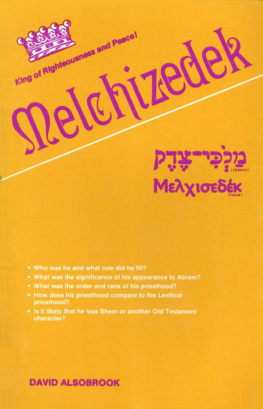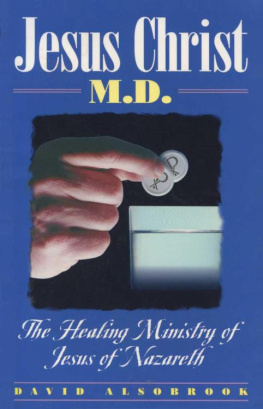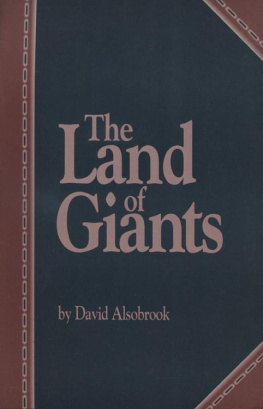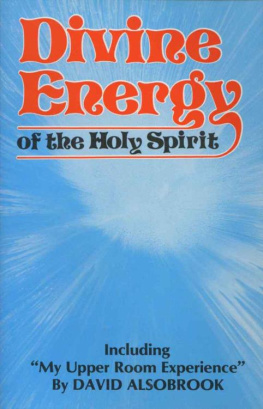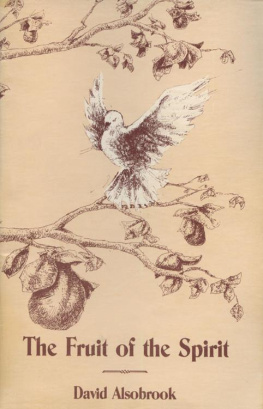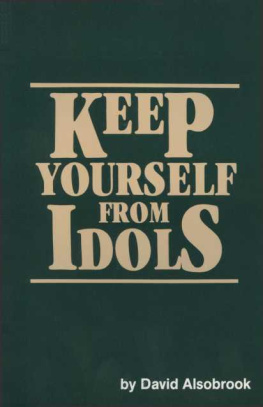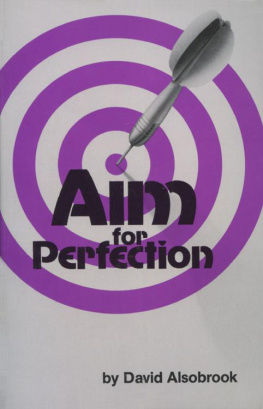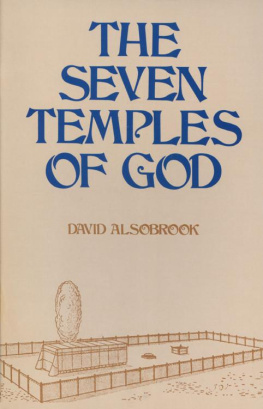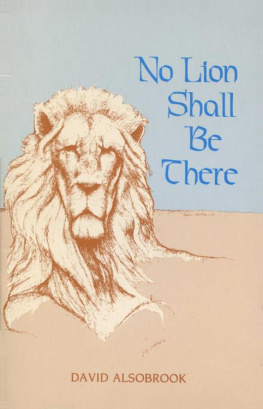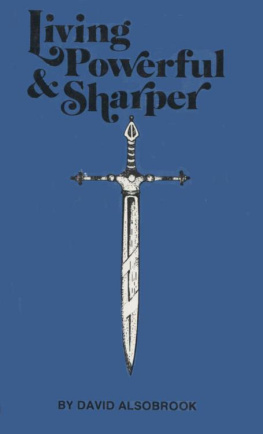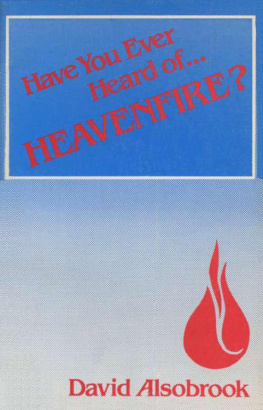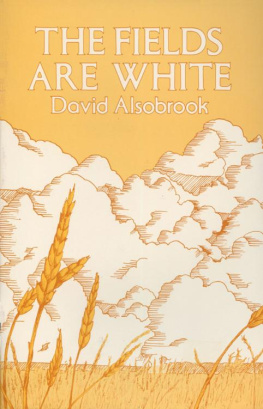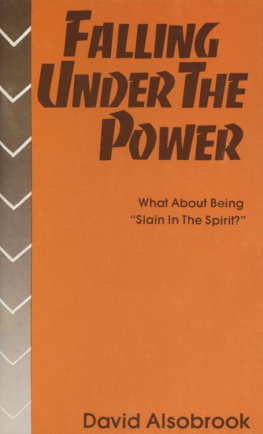David Alsobrook - Melchizedek:King of Righteousness and Peace
Here you can read online David Alsobrook - Melchizedek:King of Righteousness and Peace full text of the book (entire story) in english for free. Download pdf and epub, get meaning, cover and reviews about this ebook. publisher: David Alsobrook Ministries, genre: Religion. Description of the work, (preface) as well as reviews are available. Best literature library LitArk.com created for fans of good reading and offers a wide selection of genres:
Romance novel
Science fiction
Adventure
Detective
Science
History
Home and family
Prose
Art
Politics
Computer
Non-fiction
Religion
Business
Children
Humor
Choose a favorite category and find really read worthwhile books. Enjoy immersion in the world of imagination, feel the emotions of the characters or learn something new for yourself, make an fascinating discovery.
- Book:Melchizedek:King of Righteousness and Peace
- Author:
- Publisher:David Alsobrook Ministries
- Genre:
- Rating:5 / 5
- Favourites:Add to favourites
- Your mark:
- 100
- 1
- 2
- 3
- 4
- 5
Melchizedek:King of Righteousness and Peace: summary, description and annotation
We offer to read an annotation, description, summary or preface (depends on what the author of the book "Melchizedek:King of Righteousness and Peace" wrote himself). If you haven't found the necessary information about the book — write in the comments, we will try to find it.
Melchizedek:King of Righteousness and Peace — read online for free the complete book (whole text) full work
Below is the text of the book, divided by pages. System saving the place of the last page read, allows you to conveniently read the book "Melchizedek:King of Righteousness and Peace" online for free, without having to search again every time where you left off. Put a bookmark, and you can go to the page where you finished reading at any time.
Font size:
Interval:
Bookmark:
Note: The name "Melchizedek" is spelled "Melchisedec" in the Epistle to the Hebrews due to anglicization by the King James translation. The most correct spelling is the former. Only in the direct quotes from the Book of Hebrews have we used the latter spelling.
Contents
I Melchizedek in Genesis 14:18-20
II Melchizedek In Psalm 110:4
III Melchizedek in the Book of Hebrews
IV Melchizedek in My Opinion
"The LORD hath sworn, and will not repent, THOU ART A PRIEST FOR EVER after the order of Melchizedek"(Psalm 110:4).
I Melchizedek in Genesis 14:18-20
From a casual reading of chapter 14 of Genesis we find what appears to be a long list of seemingly endless names.
But if you will anoint your eyes with eye salve and let the Spirit of wisdom and revelation in the knowledge of God enlighten the eyes of your understanding, this chapter can become most illuminating. It concerns this wonderful person, Melchizedek, who met Abram when he returned from the slaughter of the kings.
Four different kings had formed an alliance to come against various rulers especially the kings of Sodom and Gomorrah. They fought against and overcame these two cities, taking all of their goods, and all of their victuals.
Now I'm sure they destroyed many of the people of Gomorrah, and evidently took only people who were of some noteworthiness. That included Lot, Abram's nephew.
You might ask, "Why was Lot living in Sodom and Gomorrah in the first place?" The Bible tells us in Genesis, chapter 13, that the men of Sodom were exceeding great sinners before the Lord. Lot had lived with Abram for years, before his herd grew so large that Abram had said to him, "Go ahead and take any part of the country you desire." Lot saw that beautiful, lush green valley in which were the cities of Sodom and Gomorrah. He decides to live in that valley, evidently for commercial reasons, taking his flocks to market, etc. It was more profitable businesswise to live closer to Sodom. No doubt he began compromising, inching his way toward the city of Sodom, until finally, he moved into that city. And he was a man of great wealth and renown. Eventually he became an elder in that town, sitting in the gate, a man of quite some esteem.
Abram receives word that these raiding kings had overcome Sodom and Gomorrah and had taken away all of the goods, riches, wealth, and also his nephew, Lot.
Abram banded together 318 servants, who were born in his own house. These were not men, in all likelihood, who were great fighters or warriors. They were not trained as soldiers; they were servants. One of the greatest of military miracles that ever took place transpired shortly afterward.
We will begin reading in Genesis, chapter 14, verse 13:
"And there came one [of the captives] that had escaped, and told Abram the Hebrew" that Lot, his nephew, had been captured.
Abram never called Lot his nephew, but always referred to him as his "brother." Why did he call Lot his brother?
Abram's brother, Haran, and his wife had given birth to this boy, Lot. Later Haran died and Lot came to live with Abram. It was more or less a father-son type of relationship, yet Abram never called him son. Evidently Lot had so much of his father's resemblance, features, characteristics that Lot reminded Abram of Haran to the point that Abram referred to Lot as "brother," rather than nephew, or even as son.
"And there came one that had escaped, and told Abram the Hebrew; for he dwelt in the plain of Mamre the Amorite, brother of Eschol, and brother of Aner: and these were confederate with Abram." Mamre was a good friend of Abram, and had this big plain, allowing Abram, the Hebrew (the first person in the Bible referred to as a Hebrew), to dwell in that plain, as well as Mamre's brothers Eshcol and Aner.
And when Abram heard that Lot was taken captive, he armed his trained servants, and pursued them unto Dan (verse 14). Abram equipped his servants, saying, "Let's go and rescue Lot and his family and his goods from these kings who have run off with them" (paraphrased).
Now this took great boldness. Can you imagine 318 non-professional soldiers going out against thousandsfour kings, each with thousands of soldiers? But Abram is moving in divine favor and knows that Elohim is with him. El Shaddai, the Almighty God will soon make himself known to Abram. Abram knows that God has blessed him. Yahweh has talked with him and so he goes in His might and His confidence to get back nephew Lot.
Verse 15: "And he divided himself against them, and he and his servants, by night, and smote them, and pursued them unto Hobah, which is on the left hand of Damascus. And he brought back all the goods, and also brought again his brother Lot, and his goods, and the women also, and the people." He had great, total victory!
He overcame, having slain each of the opposing, warring five kings and his armies. Hebrews 7:1 referred to Abram's victory as a "slaughter."
Verse 17: "And the king of Sodom went out to meet him after his return from the slaughter of Chedor-laomer, and of the kings that were with him, at the valley of Shaveh, which is the king's dale." We see here the king of Sodom greeting Abram on his victorious return and then we see that someone else comes on the scene. In the next three short verses we read of this personage, Melchizedek.
Verse 18: "And Melchizedek king of Salem brought forth bread and wine: and he was the priest of the most high God." This is the first place in the Bible where we see the concept of a king , who was also a priest, for it says "king of Salem... and he was the priest of the most high God." This is spoken concerning the man Melchizedek.
Verse 19: "And he blessed him." The author of the Book of Hebrews clearly indicates who is blessing whomnot that Abram is blessing Melchizedek, but leaving no doubt that he, Melchizedek, blessed Abram, saying,
"Blessed be Abram of the most high God, possessor of heaven and earth: and blessed be the most high God, which hath delivered thine enemies into thy hand." So we see that Melchizedek pronounces a blessing upon Abram. First he blesses Abram, who he says is "of the most high God," who is possessor of heaven and earth."
How true! Melchizedek was the first person to use the title
"Most High God" in the Scripture. That is who Melchizedek was a priest to.
Verse 20: "And blessed be the most high God (Hebrew: El-Elyon)." Now he blesses the God of Abram, "which hath delivered thine enemies into thy hand."
Melchizedek says that Abram's great military miracle is completely from God. Abram recognized that it was God who delivered thousands of soldiers into his hands, with only a few hundred men fighting in his behalf.
We see that after Melchizedek blesses Abram, "he gave him tithes of all." Hebrews, chapter 7, brings out that it is Abram giving the tithe to Melchizedek. Here is another firstthe first time in the Bible where we see the word
"tithe." Tithing is not an old covenant institution. That is, it did not start with the law, because over 400 years before the old covenant was inaugurated, God had established a covenant with Abram. It was in this Abrahamic Covenant, that the tithe was first offered. Someone has said that Abraham COMMENCED it, Moses COMMANDED it, Jesus COMMENDED it, so who are we to CANCEL it!
Abram commenced the tithe, as he gave to Melchizedek one-tenth of all of the spoil, all of the goods all of the victuals, all of the riches, that he recovered from the raiding kings.
Then after the three verses in Genesis 14 Melchizedek disappears from this record, and we see the king of Sodom once again addressing Abram.
Notice three things: (concerning the Melchizedek-Abram encounter). First, in verse 18, Melchizedek served
Abram bread and wine. We might think of the bread and wine only in the sense of refreshment, having returned from the battle, but we will see in our further study something far deeper than a refreshment in Melchizedek's serving Abram bread and wine. Second, notice in verse 19
Next pageFont size:
Interval:
Bookmark:
Similar books «Melchizedek:King of Righteousness and Peace»
Look at similar books to Melchizedek:King of Righteousness and Peace. We have selected literature similar in name and meaning in the hope of providing readers with more options to find new, interesting, not yet read works.
Discussion, reviews of the book Melchizedek:King of Righteousness and Peace and just readers' own opinions. Leave your comments, write what you think about the work, its meaning or the main characters. Specify what exactly you liked and what you didn't like, and why you think so.

